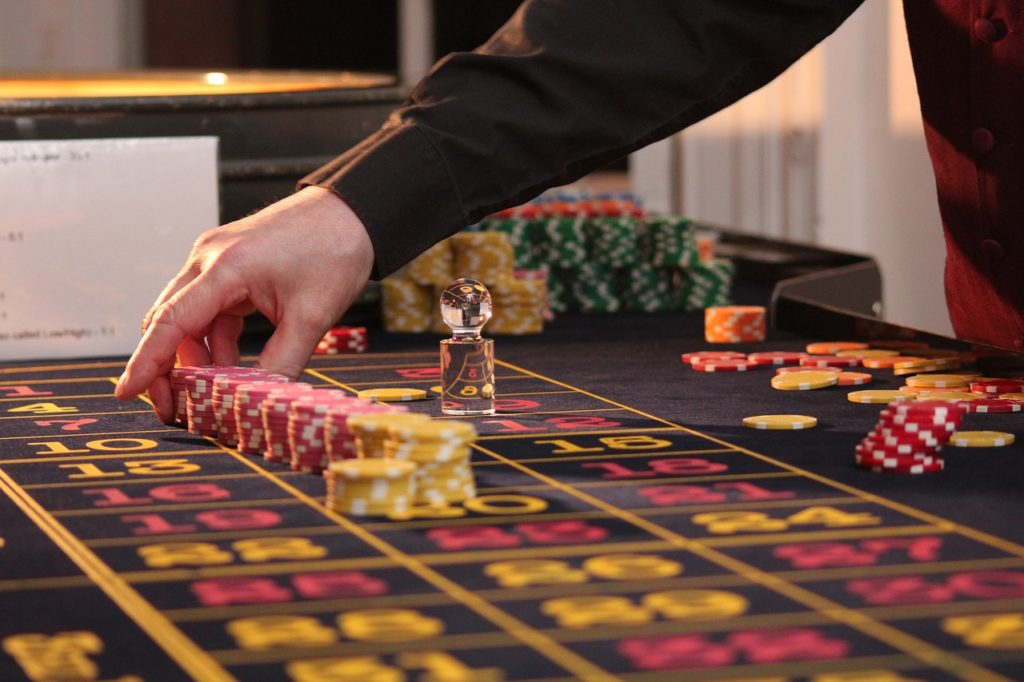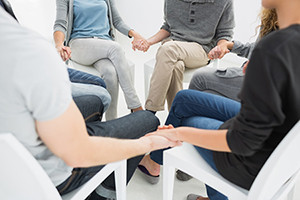
Gambling addiction is a type of impulse-control disorder, affecting approximately 4% of the population.
Forms of gambling may vary from placing bets on sporting events or horse races, playing Video Lottery Terminals or VLTs, or playing card games in casinos like Poker or Black Jack.
While placing bets or playing VLTs once in a while may seem like fun, feeling the ‘rush’ of winning can lead to increased gambling, and over time may develop into a behavioral addiction.
Symptoms of gambling addiction include such things as:
- Preoccupation with gambling- frequent thoughts or urges to gamble
- Using gambling as an escape
- Using gambling in any form to increase one’s mood or escape from life problems, stress, or anxiety; tolerance
- Needing to increase the amount of time or money spent on gambling to experience the same levels of excitement experienced when gambling first began
- Feeling a sense of loss of control- desire to stop or lessen gambling, with unsuccessful attempts to stop
- Feeling like one’s life is controlled by urges to gamble
- Withdrawal- negative changes in mood when unable to gamble or when attempting to stop or cut back.
Depending on the severity of the addiction, many may recover naturally, by making conscious changes, while others may need support from outside sources such as Gambler’s Anonymous or a counselor. Various treatment options will be outlined below.
Natural Recovery & Self-Help
Individuals with a mild to moderate gambling addiction may be able to recover without professional help; a study of recovered gamblers noted that many were able to identify particular reasons why they wanted to quit, and then utilized cognitive and behavioral strategies to avoid or limit future opportunities for gambling.
The two main reasons for wanting to quit were financial strain (incurring debt, loss of income, feeling unhappy with one’s financial situation as a result of gambling), and negative emotions (stress, panic, depression, or guilt due to gambling).
Other reasons included such things as feeling like they had hit rock bottom, experiencing a confrontation by loved ones about gambling, problems with spouse or work, wanting to change for children and/or family, legal problems, humiliating or traumatic events, religious involvement, or major lifestyle changes. Identifying specific reasons as to why you want to stop or cut back on gambling is the first step in making a successful change!
 Upon identifying reasons to change, the gamblers then actively made changes using either stimulus control methods, or cognitive strategies.
Upon identifying reasons to change, the gamblers then actively made changes using either stimulus control methods, or cognitive strategies.
Stimulus control refers to behavioral changes such as avoiding opportunities for gambling, or avoiding locations where gambling may take place; restricting access to money or not carrying cash around; or taking up new activities.
This can be in the form of exercise, reading, spending more time with family, or increasing time spent at work.
By engaging in a different activity upon feeling an urge to gamble, study participants noted the positive changes such as increased health and wellness, improved relationships, and reduced financial strain as a result of exchanging gambling for new activities.
Cognitive strategies include such things as being mindful of the negative outcomes associated with gambling. Recalling past problems or negative consequences of gambling such as loss of money, or arguments with family members as a result of gambling, coupled with a five or ten-minute delay in acting on the urge to gamble can be effective.
Workbooks & Cognitive Behavioral Therapy
If trying to recover on your own is difficult, self-help workbooks or treatment programs with a counsellor may be more effective. The workbooks allow the individual to work at their own pace, while cognitive behavioral treatment (CBT) with a counsellor may take the form of weekly sessions over a period of 16 – 30 weeks.
As problem gambling usually revolves around incorrect perception of control over uncontrollable events. One may feel that after losing 3 times in a row, the next bet is sure to be a win- this is known as the “gambler’s fallacy”; the illusion that the outcome of preceding events effects the outcome of subsequent events.
Unfortunately, the outcome of gambling is completely random, and not predicted by previous success or loss. CBT helps the individual to correct these perceptions through problem-solving training and cognitive awareness of problems.
Similar to the strategies outlined above, CBT will also encourage the adoption of alternative coping strategies for dealing with stress (such as enlisting support from friends to avoid gambling), and help to identify high-risk situations to prevent relapse into gambling behavior.
Gamblers Anonymous
 Many individuals find support groups to be very helpful in quitting or cutting back on gambling. Using a similar program as the 12 Step Program utilized by Alcoholics Anonymous, Gamblers Anonymous (GA) helps those to admit how gambling has made one’s life unmanageable, and to accept help from a Higher Power to overcome the addiction.
Many individuals find support groups to be very helpful in quitting or cutting back on gambling. Using a similar program as the 12 Step Program utilized by Alcoholics Anonymous, Gamblers Anonymous (GA) helps those to admit how gambling has made one’s life unmanageable, and to accept help from a Higher Power to overcome the addiction.
Some may be turned off by the religious aspect of 12 Step Programs, but all Anonymous groups explain that ‘God’ is of our own understanding, and is adaptable to any belief system.
The social support from GA can be extremely useful in overcoming problem gambling; as members are able to attend meetings in person or over the phone, and can work with a personal sponsor to contact when urges occur.
Working through the 12 Steps is quite similar to CBT, where the individual identifies the problem and then works through various steps to overcome the addiction.
In-Patient Treatment
Lastly, for those with very severe gambling problems that have not been successfully treated with self-help, CBT, or group programs, in-patient treatment may be necessary. Treatment facilities in your area can likely be found online, or through a family physician.
This type of program generally requires a physician referral, so speak to your doctor if you feel that in-patient treatment is the best option for you. In-patient treatment may vary in length, lasting anywhere from 6 to 12 weeks or longer, depending on the program.
About the author:
 Stephanie Sands is currently pursuing a Bachelor of Science degree in Kinesiology, majoring in Mind Sciences. She completed an Honors Degree in Psychology in 2012, focusing on eating disorders and personality. She intends to combine her educational background into a holistic wellness practice, to strengthen mental health through a combination of counselling, physical activity, and nutrition coaching.
Stephanie Sands is currently pursuing a Bachelor of Science degree in Kinesiology, majoring in Mind Sciences. She completed an Honors Degree in Psychology in 2012, focusing on eating disorders and personality. She intends to combine her educational background into a holistic wellness practice, to strengthen mental health through a combination of counselling, physical activity, and nutrition coaching.
The opinions and views of our guest contributors are shared to provide a broad perspective of addictions. These are not necessarily the views of Addiction Hope, but an effort to offer discussion of various issues by different concerned individuals.
We at Addiction Hope understand that addictions result from a combination of environmental and genetic factors. If you or a loved one are suffering from an addiction, please know that there is hope for you, and seek immediate professional help.
Reviewed By: Jacquelyn Ekern, MS, LPC on February 3, 2016
Published on AddictionHope.com
References
Gamblers Anonymous: www.gamblersanonymous.org/ga/
Hodgins, D. C., Currie, S. R, & el-Buebaly, N. (2001). Motivational enhancement and self-help treatments for problem gambling. Journal of Consulting and Clinical Psychology, 69(1), 50-57.
Hodgins, D. C., & El-Guebaly, N. (2000). Natural and treatment-assisted recovery from gambling problems: A comparison of resolved and active gamblers. Addiction, 95(5): 777-789.
Sylvain, C., Ladouceur, R., & Boisvert, J.M. (1997). Cognitive and behavioral treatment of pathological gambling: A controlled study. Journal of Consulting and Clinical Psychology, 65(5): 727-732.

